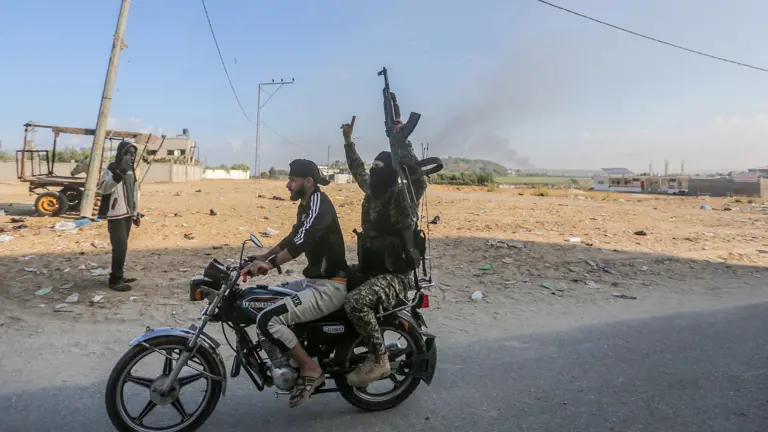Andrew Exum

The past week in Israel and the Palestinian territories has been horrific, and the next few weeks promise only more misery and pain.
Every shooting war is also a war between competing narratives—each side has its preferred way of framing the conflict—and few have been as fiercely contested in this regard as the war between Israel and the Palestinians. A week in, we should pause to interrogate some of what we have heard combatants and pundits say.
Hamas is ISIS.
In the aftermath of the attacks on Israel, which included atrocities such as the murder of children and the elderly, Israel and its defenders have likened Hamas to the Islamic State, the violent Islamist movement that briefly took over large swaths of Iraq and Syria before its defeat by local forces.
The comparison is at once understandable and misguided. I served as the senior Pentagon official responsible for the Middle East when we created the campaign plan that eventually defeated ISIS, and I remember the reporting—both open-source and classified—that clearly outlined the group’s ruthless nature. Hamas is certainly guilty of ISIS-like crimes, and it is responsible for all of the atrocities that took place on Israeli soil. But some of those crimes—including the murder of innocent civilians—appear to reflect Hamas’s disorganization, relative to ISIS, as much as its brutality.
The pictures and videos we have seen from Israel seem to support the assertion, made by Hamas and others, that the initial incursion into Israel became a mass breakout; other Palestinians, seemingly not under the direct command and control of Hamas, appear to have piled into Israel, murdering and kidnapping Israelis at will. The idea that some of the worst atrocities might have been the result of disorganized, animalistic impulse is somehow even less comforting than the assumption that they were part of an explicit strategy.
Yet I heard from one well-informed observer that Hamas was initially unsure precisely how many Israelis had been kidnapped. Indeed, whether an Israeli mother or child was met with indifference or slaughter might have been determined as much by chance as by plan. Hamas seems to have been surprised by its own success —the helmet-cam-style videos Hamas has released do not portray a world-beating force, making the Israel Defense Forces’ initial reversals all the more embarrassing—and to have had no plan whatsoever for how it should deal with innocent lives. All too often, brutality appears to have triumphed over mercy.
The war in Gaza, though, does resemble the last phases of the war against ISIS in several unfortunate ways. By late 2016, the U.S.-led coalition, which included Syrian Kurds and Iraqi soldiers on the front lines, had pushed ISIS out of its more recently captured territories and into Raqqa and Mosul, its last two urban redoubts. The human costs of recapturing Raqqa and Mosul were staggering. Unlike in, say, Ramadi or Manbij, where locals were more ambivalent about ISIS rule, ISIS had strong local support in both Raqqa and Mosul, much as Hamas does in Gaza. Like Gaza, too, Raqqa and Mosul are large urban areas: Avoiding large-scale civilian casualties was impossible.
Israel now marches into Gaza, where Hamas has ruled with an iron fist but where most residents prefer even Hamas rule to Israeli occupation. As in the campaign to defeat ISIS, finding and killing Hamas’s leaders will result in the deaths of thousands of innocents as well.
No comments:
Post a Comment